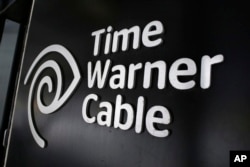A massive merger proposed this week in the U.S. cable television, movie and internet business is a symptom of large and rapid changes in that industry.
The prospect of combining AT&T with Time Warner boosted stock markets, but a social media expert says making large companies even bigger could hurt the innovation that is key to survival. Other experts say the combined company might have problems getting government approval.
The merger proposal comes as cable television companies expect less revenue because customers are turning to internet alternatives.
Time Warner is the parent company of Home Box Office, a cable television channel that shows Game of Thrones and many other popular programs. The big company is the target of an $84 billion merger bid by AT&T, which is one of the biggest providers of internet and wireless communications and a conduit for television programming through its DirectTV service.
An expert at the Silverback Social media agency says accelerating change in the media landscape makes innovation crucial to success and survival. Large, lumbering companies are slow to innovate, according to Silverback's Chris Dessi. He says innovation is much more likely to come from "two or three guys in a basement somewhere - they are in Silicon Valley - they are going to do something so compelling, it is going to change everything we are talking about in the entire media landscape."
On the stock market, skeptical investors pushed down the two companies' stock prices, on worries that it will be difficult to get regulators to approve the merger. But investors often see mergers as a sign of economic confidence, and the news sent overall stock markets up, according to the head of CFRA Research, Sam Stoval.
"Why would AT&T be doing this unless it feels as if there is some growth potential, at least expecting that the economy could be improving over the next several quarters?"
CNN is another Time Warner company that would be affected by the merger. CNN produces news programs seen in the United States and around the world. Critics say allowing the huge combined company to control so much news and entertainment programming puts too much power in too few hands.
Professor Victor Pickard, who researches the media industry at the University of Pennsylvania, also says mergers may mean customers pay more and get less. "One way or another consumers get hit in their pocketbooks and end up paying more on a regular basis. And many of the purported benefits that industry representatives claim will come out of this often do not ever materialize, at least not to the extent they promise."
Experts argue about the chances the huge merger will win approval from regulators concerned about competition and other issues. Some say the odds of success are 50-50.






